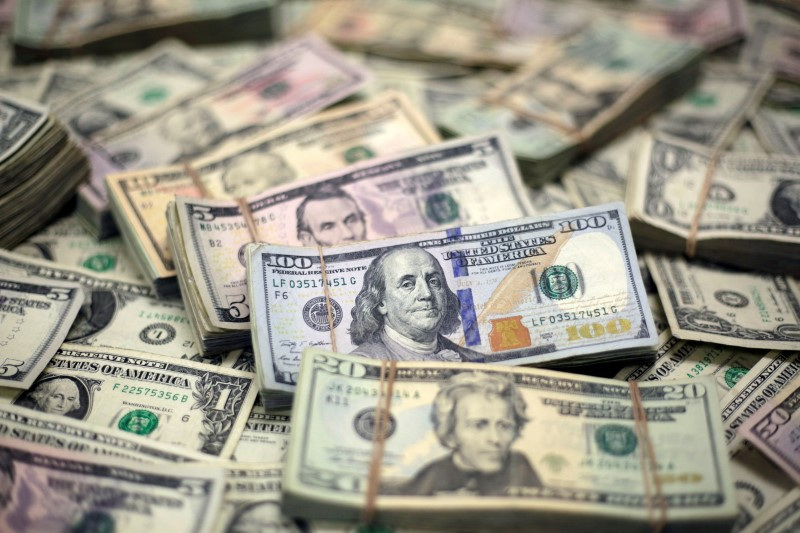Dollar loses ground against euro as inflation data shows cooling
By Laura Matthews and Sruthi Shankar
(Reuters) - The dollar lost ground against its major peers on Wednesday, helping the euro to an eight-month peak, as the U.S.consumer price index showed inflation is subsiding, reinforcing expectations that Federal Reserve interest rate cuts are near.
U.S. CPI rose moderately in July and the annual increase in inflation slowed to below 3% for the first time since early 2021, adding to expectations for a rate cut next month, though likely less aggressive than markets hoped for.
The report adds to the mild increase in producer prices in July in suggesting that inflation is on a downward trend. This should give the Fed room to focus more on the labor market amid growing concerns of a sharp slowdown.
"Today's CPI is supportive with the Fed getting to its 2.8% PCE target, which it has for the end of this year. It supports a cut in September, but one where it's potentially more moderate than what the market had thought over the course of the last week," said Marvin Loh, senior global macro strategist, State Street (NYSE:STT ).
"I think we've got a weaker dollar trend, because the dollar is still overweight when it comes to investor positioning."
The euro rose 0.4% against the greenback to $1.1031, surpassing the high hit during the market turmoil last week and was trading at its strongest level since Jan. 2. The dollar index fell 0.2% to 102.4.
Traders had been widely expecting a rate cut in September before the producer price data, and ramped up bets for a super-sized 50 basis-point cut after the release to 56% from 53% a day earlier, according to CME Group's (NASDAQ:CME ) FedWatch Tool.
STERLING DIPS, KIWI SLIDES
Sterling failed to gain on the weaker dollar and was last down 0.02% at $1.2854 after data showed the rise in British consumer price inflation was smaller than expected in July as services prices - closely watched by the Bank of England - rose less rapidly.
The pound did soften on the euro, however, which was up 0.4% at 85.84 pence. Financial markets priced in a 44% chance of a quarter-point BoE rate cut in September, up from 36% before the data was released.
The kiwi was last down 0.91% at 0.6022, after the Reserve Bank of New Zealand reduced the cash rate by a quarter point, its first easing since early 2020 and coming a year earlier than its own projections.
Meanwhile, Japanese Prime Minister Fumio Kishida's decision to not run for reelection in his party's leadership race next month had little effect on markets, analysts said.
The yen was last trading at 146.7 against the dollar.
"Evidence continues to accumulate that elevated inflation is behind us, setting the stage for aggressive monetary easing across the globe over the next year," said Matt Weller, head of market research at StoneX. "EUR/USD on track for its highest close of the year and the U.S. Dollar Index breaking down, the greenback may remain under pressure from here."
Source: Investing.com
